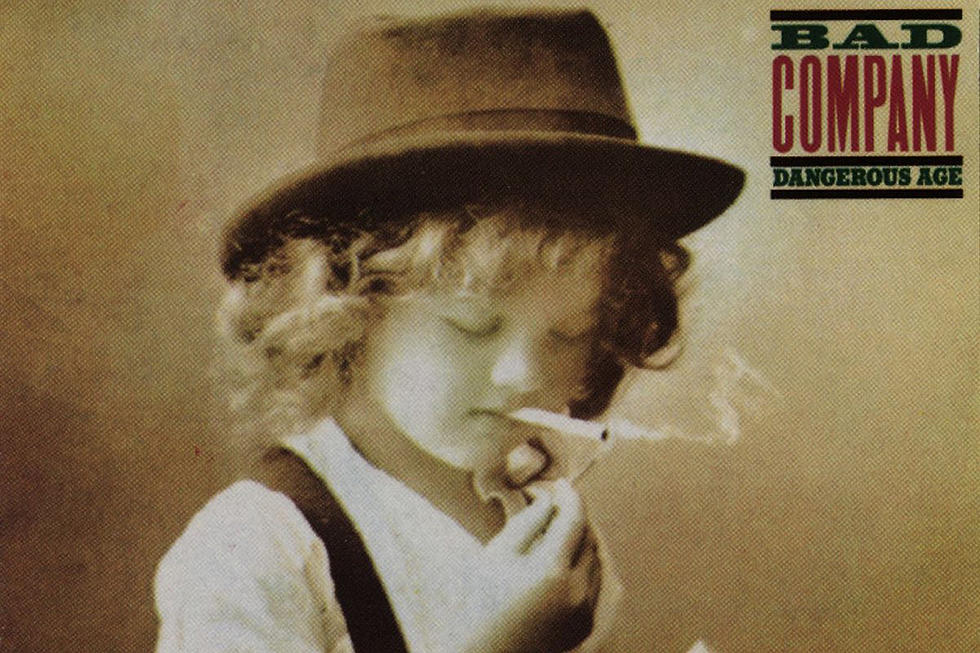30 Years Ago: Bad Company Stumbles Into Post-Paul Rodgers Era With ‘Fame and Fortune’
Guitarist Mick Ralphs has said that Bad Company's early-'80s break up was a bad business decision. Fame and Fortune, released as a reunion project with new frontman Brian Howe in October 1986, clearly meant to remedy that.
They started by keeping the name, despite the fact that – in a first for Bad Company - Gregg Dechert had come on board to play keyboards in founding lead singer Paul Rodgers' very obvious absence. Suddenly, their tough, typically bluesy sound was replaced by the generic pop-rock of the day.
“When I first joined the band, we weren’t going to call ourselves Bad Company,” Howe told the Quad-City Times in 2006. “So, there was no pressure at all. It wasn’t until after the first record was finished that the record label pretty much wanted ourselves to be called Bad Company. So, against my better wishes, the other two guys wanted to go with it. I was outvoted.”
As with continuing on without Paul Rodgers, and opting to add period-specific instrumentation, it all came down to business.
"Rodgers' voice was important to the band, just as important as Mick's guitar or my drums," fellow co-founding member Simon Kirke told the Sun-Sentinel in 1986. "Obviously, the lead singer of a band will get the spotlight, but bear in mind that most of the hits were written by Mick Ralphs. Paul wrote an awful lot of material but it was mostly album-oriented songs. So, it's kind of unfair criticism."
Next, they brought in producer Keith Olsen, who – under the watchful eye of executive producer and songwriting collaborator Mick Jones of Foreigner – continued applying a sleek sheen to Bad Company's new material. Jones, in fact, had recommended Howe, a former singer with Ted Nugent. "I've known Mick for the last 15 years," Howe told the Toledo Blade in 1986. "He used to idolize Bad Company in the '70s, so he had a real interest in resurrecting the band."
Dechert not only appeared on Fame and Fortune, but also toured with the group – contributing splashes of synth to complete Bad Company's neon-lit transformation. "It's easy to stand still and stick your head in the sand and pretend that nothing has changed," Howe argued in that 1986 talk with the Blade. "But these songs came quite naturally to us. The old sound is just a wee bit too empty for these days. The keyboards add new textures."
Listen to Bad Company Perform 'Tell It Like It Is'
Clearly, as Fame and Fortune stalled at a paltry No. 106 on the Billboard charts, listeners disagreed – and soon, members of Bad Company would, too. Previous to that, the band's lowest charting album was 1982's gold-selling No. 26 finisher Rough Diamonds, the final project with Rodgers. Every other album had soared to No. 15 or higher.
Kirke, in his 1986 interview with the Sun-Sentinel, was still in the mood to push back. "This album is better than the last two of Bad Company's," he said then. "As the old Bad Company, I think we were running out of ideas, running out of steam and just about to run out on each other. But this album was great. We had a good producer and a great remix and we are all very satisfied with it."
That said, even an apologist like Kirke couldn't help but hint at what was to come: "I think you'll see the next Bad Company, however, returning to its roots."
Howe also came to regret some of this record's '80s-specific elements. "The first one, Fame and Fortune, was really a stupid effort, full of keyboards," Howe told the Fayetteville Observer in 1990, "and that's not what Bad Company is supposed to be doing."
The follow up, 1988's Dangerous Age, began another period of ascension for Bad Company, and by 1990's Holy Water, they were were briefly platinum sellers once more.
"Fame and Fortune was a bit of a turkey," Kirke told the Post Bulletin in 1991. "But then we dug deep into our reserves and came up with Dangerous Age, which I think is one of the best albums we've ever made. We had a successful tour and that paved the way and put us back on course for Holy Water. And my God! Now we have a Top 20 hit!"
Howe departed after 1992's Here Comes Trouble, but not before taking some measure of credit for resurrecting a moribund franchise in Bad Company. “We wrote damn good songs, we recorded them very well,” he told the Quad-City Times. “We wrote commercially sounding, good, quality rock songs, and there’s always a market for that.”
Bad Company Joins Others Who Should Be in the Rock and Roll Hall of Fame
More From Ultimate Classic Rock









